Guest Blogger: Jeanne Stein
 The winner of Jeanne's book and magnets is: Ruth Schaller! Congrats, Ruth. Send me your snail mail info and I'll pass it along to Jeanne. Thanks so much to everyone for participating.
The winner of Jeanne's book and magnets is: Ruth Schaller! Congrats, Ruth. Send me your snail mail info and I'll pass it along to Jeanne. Thanks so much to everyone for participating.
Urban Fantasy
Thank you, Lynda, for inviting me to post here. I just got back from DragonCon -- a four-day love fest for all things that go bump in the night. In both participating in panels and listening in the audience, I was struck once again by how many aspiring writers out there have questions about Urban Fantasy. The main one is: How do you write it?
So, for all you aspiring writers, here’s my take on the subject.
First, we start with some rules.
I know, I know. I hate it when someone says there are “rules” to writing -- And of course, for every rule we set there will be an exception that works perfectly well. But the first rules I’m setting forth here apply to ALL writing. They are basic, maybe too obvious, but worth mentioning.
They are Robert Heinlein’s Five Rules:
Heinlein (1907-1988) was one of the first authors of bestselling, novel-length science fiction. He was also one of the first to break into mainstream markets and is often called the “dean of science fiction writers.” He freely gave away his five rules because he said almost no one would follow them -- hence he was not afraid of competition. What are they?
1. You must write.
2. You must finish what you start.
3. Your must refrain from rewriting except to editorial order.
4. You must put your story on the market.
5. You must keep it on the market until it has sold.
Did I mention they were obvious?
Let’s start with rule one. How many people do you know that have either started a novel or said that they plan to write one “someday?” They are not writers. A writer puts his butt in the chair everyday -- even if it’s fifteen minutes at lunchtime, during the baby’s nap or an hour before bedtime. If you are serious about writing, you will make time.
Rule two -- another no-brainer. Yet, there are countless unfinished manuscripts floating around waiting for the magic moment when their authors find time to finish them. Refer to Rule one.
Rule three -- This does not mean NEVER rewrite. It means don’t keep REwriting Chapter One because you want to make it perfect. If you have a critique group, let them offer suggestions as you go along, but forge ahead. Don’t get hung up on one sentence or page or chapter. When the manuscript is finished and you get an editor or agent, they will tell you what more needs to be done.
Rule four -- May be the hardest rule of all. It’s scary to launch your baby on the world, but you have to. Research markets, research agents and editors, network at conventions. Get it out there.
Rule five -- I take it back. This may be the hardest rule. If you’re lucky, you’ll strike gold right out of the box. If not, take whatever comfort you can from knowing that authors from J. K. Rowling to Stephen King have faced rejection. Many rejections. It’s different when it happens to you. It’s personal and it hurts, especially if it comes in a form letter. On the other hand, sometimes you receive a real letter offering advice and extending an offer to reread the manuscript after you make whatever rewrites are suggested. This is a very GOOD rejection letter. It means you’re on the right track.
Okay, those are Heinlein’s rules. Here are some of my own:
1. You want to write UF -- read it. To grab an audience, you need to know what it wants.
2. Now that you know what it wants, write for that audience.
3. Learn about conflict -- creating it, resolving it.
4. Structure your story for maximum impact.
5. Beginnings and endings are most important -- learn to make them so good, your readers will not be able to put the book down once they start and disappointed when they get to the end because they want more.
As for rules one and two, I know the popular conception is that since it often takes two years for a book to go from acceptance by a publisher to release, if you write what’s hot in the market NOW, by the time your book is released, the wave has passed. Perhaps. On the other hand, if you write the book you WANT to write, if it’s well written and compelling, it doesn’t matter what’s “hot” in the market. Well-written stories sell.
Rules three and four -- Dwight Swain in his book Techniques of the Selling Writer showed us how to create conflict: with the scene. He told us what each scene should contain: goal, conflict, disaster. What does this mean? The easiest way to explain it is to show it. Our protag for this simple example is a vampire. She is after a potion that is believed to hold the secret to regaining her mortality, something she desperately wants. She knows where it is (goal). She gets there. The potion is guarded by a supernatural determined to keep it from her (conflict). They fight. She wins. When she opens the bottle, it’s empty (disaster.)
Every chapter in your book should be constructed in such a way that the reader has to keep turning the pages -- has to find out what happens next. If you do that, your story has maximum impact.
Beginnings -- I can’t emphasize how important the opening paragraph of your book must be. In fact, if you’re submitting a manuscript, let me pass on what I’ve heard from EVERY editor and agent -- if the first paragraph doesn’t grab their attention, they will read no further.
The first paragraph.
How do you make that paragraph an attention grabber? Drop your protagonist in the middle of the action. If she’s human, she’s being chased by demon bad guys. If she’s paranormal, demon bad guys are chasing her.
I know I’ve covered a lot in a very abbreviated way. But honestly, writing is not complicated. It’s not mysterious. It’s not impossible. The road to publication takes dedication, perseverance, hard work. But the rewards are well worth the effort.
So: here’s my question for a copy of Legacy and a set of book cover magnets: What is the main feature of Urban Fantasy that distinguishes it from paranormal/romance? Remember when I said if you want to write it, you have to read it? Here’s your chance to prove you’re doing your homework!
Jeanne Stein
www.jeannestein.com
Blog: www.biting-edge.blogspot.com/
So, for all you aspiring writers, here’s my take on the subject.
First, we start with some rules.
I know, I know. I hate it when someone says there are “rules” to writing -- And of course, for every rule we set there will be an exception that works perfectly well. But the first rules I’m setting forth here apply to ALL writing. They are basic, maybe too obvious, but worth mentioning.
They are Robert Heinlein’s Five Rules:
Heinlein (1907-1988) was one of the first authors of bestselling, novel-length science fiction. He was also one of the first to break into mainstream markets and is often called the “dean of science fiction writers.” He freely gave away his five rules because he said almost no one would follow them -- hence he was not afraid of competition. What are they?
1. You must write.
2. You must finish what you start.
3. Your must refrain from rewriting except to editorial order.
4. You must put your story on the market.
5. You must keep it on the market until it has sold.
Did I mention they were obvious?
Let’s start with rule one. How many people do you know that have either started a novel or said that they plan to write one “someday?” They are not writers. A writer puts his butt in the chair everyday -- even if it’s fifteen minutes at lunchtime, during the baby’s nap or an hour before bedtime. If you are serious about writing, you will make time.
Rule two -- another no-brainer. Yet, there are countless unfinished manuscripts floating around waiting for the magic moment when their authors find time to finish them. Refer to Rule one.
Rule three -- This does not mean NEVER rewrite. It means don’t keep REwriting Chapter One because you want to make it perfect. If you have a critique group, let them offer suggestions as you go along, but forge ahead. Don’t get hung up on one sentence or page or chapter. When the manuscript is finished and you get an editor or agent, they will tell you what more needs to be done.
Rule four -- May be the hardest rule of all. It’s scary to launch your baby on the world, but you have to. Research markets, research agents and editors, network at conventions. Get it out there.
Rule five -- I take it back. This may be the hardest rule. If you’re lucky, you’ll strike gold right out of the box. If not, take whatever comfort you can from knowing that authors from J. K. Rowling to Stephen King have faced rejection. Many rejections. It’s different when it happens to you. It’s personal and it hurts, especially if it comes in a form letter. On the other hand, sometimes you receive a real letter offering advice and extending an offer to reread the manuscript after you make whatever rewrites are suggested. This is a very GOOD rejection letter. It means you’re on the right track.
Okay, those are Heinlein’s rules. Here are some of my own:
1. You want to write UF -- read it. To grab an audience, you need to know what it wants.
2. Now that you know what it wants, write for that audience.
3. Learn about conflict -- creating it, resolving it.
4. Structure your story for maximum impact.
5. Beginnings and endings are most important -- learn to make them so good, your readers will not be able to put the book down once they start and disappointed when they get to the end because they want more.
As for rules one and two, I know the popular conception is that since it often takes two years for a book to go from acceptance by a publisher to release, if you write what’s hot in the market NOW, by the time your book is released, the wave has passed. Perhaps. On the other hand, if you write the book you WANT to write, if it’s well written and compelling, it doesn’t matter what’s “hot” in the market. Well-written stories sell.
Rules three and four -- Dwight Swain in his book Techniques of the Selling Writer showed us how to create conflict: with the scene. He told us what each scene should contain: goal, conflict, disaster. What does this mean? The easiest way to explain it is to show it. Our protag for this simple example is a vampire. She is after a potion that is believed to hold the secret to regaining her mortality, something she desperately wants. She knows where it is (goal). She gets there. The potion is guarded by a supernatural determined to keep it from her (conflict). They fight. She wins. When she opens the bottle, it’s empty (disaster.)
Every chapter in your book should be constructed in such a way that the reader has to keep turning the pages -- has to find out what happens next. If you do that, your story has maximum impact.
Beginnings -- I can’t emphasize how important the opening paragraph of your book must be. In fact, if you’re submitting a manuscript, let me pass on what I’ve heard from EVERY editor and agent -- if the first paragraph doesn’t grab their attention, they will read no further.
The first paragraph.
How do you make that paragraph an attention grabber? Drop your protagonist in the middle of the action. If she’s human, she’s being chased by demon bad guys. If she’s paranormal, demon bad guys are chasing her.
I know I’ve covered a lot in a very abbreviated way. But honestly, writing is not complicated. It’s not mysterious. It’s not impossible. The road to publication takes dedication, perseverance, hard work. But the rewards are well worth the effort.
So: here’s my question for a copy of Legacy and a set of book cover magnets: What is the main feature of Urban Fantasy that distinguishes it from paranormal/romance? Remember when I said if you want to write it, you have to read it? Here’s your chance to prove you’re doing your homework!
Jeanne Stein
www.jeannestein.com
Blog: www.biting-edge.blogspot.com/
*****************
Leave a comment here to enter Jeanne's giveaway. The winner will be chosen Tuesday evening.
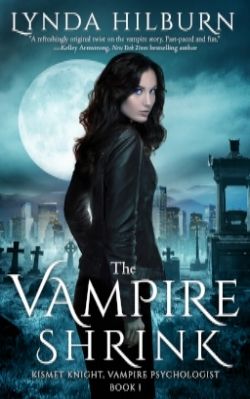
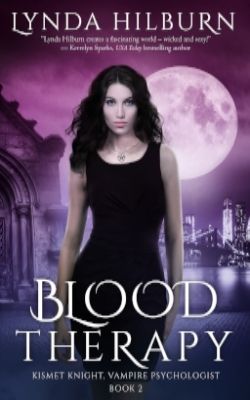
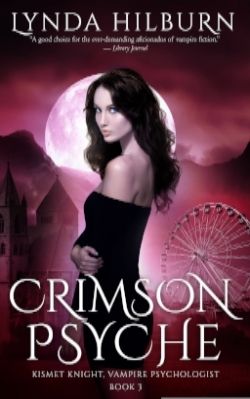
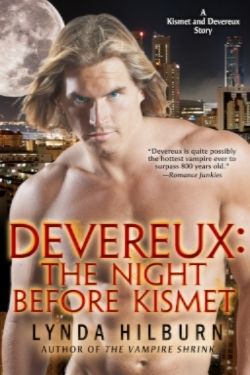

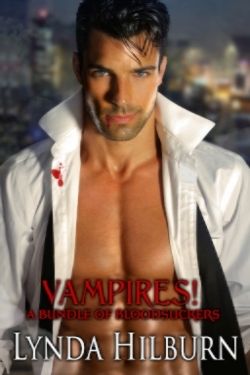
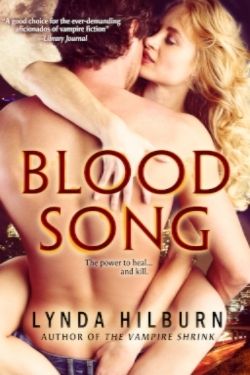
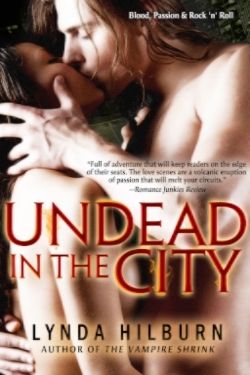
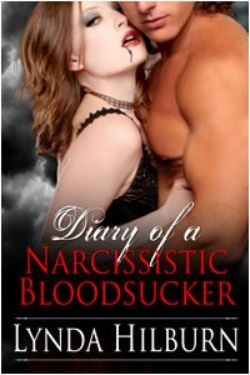
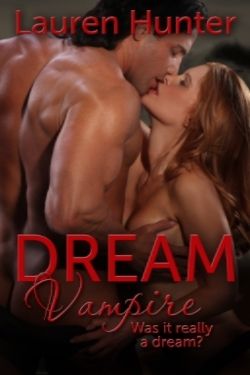
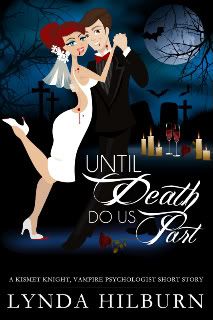
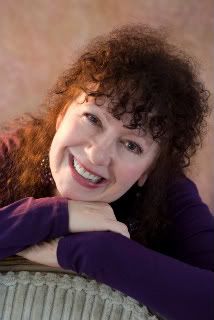
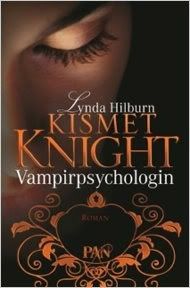
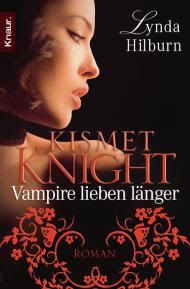
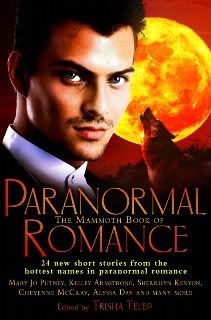
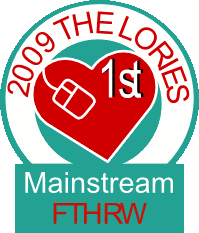




18 Comments:
Sometimes one of the hardest things to learn is to just WRITE. The constant polishing of the first 10, 20, 30 pages... what is it for? Sure you've got 30 fabulous pages but where's the rest of the story?
I had to learn that one. :)
w/a Marilu Mann
Thanks for the blog. I will never be a writer, but it interesting to learn what goes into it.
Loved Legacy! Can't wait for the next adventure of Anna!!
Hi, Jeanne! To answer your question, paranormal romance is romance, which means there's a focus on a relationship with a happily ever after. UF may or may not have a relationship, the relationship might be one in a series, there's absolutely no assured HEA and likely not even a HFN, and there's a POV difference. I know some paranormal romances have delved into the first person POV, but the bulk still seems to be third and shared between hero and heroine (and possibly others). In UF, there's a trend (not a rule, just what the majority seems to be doing) towards either first person or a very deep third person that doesn't normally shift into anyone else's POV.
Hey, Jeanne! I have to answer this, especially since I'm sure it will come up in our workshop on Saturday.
I'd say the distinguishing factor that differentiate UF from PR is the focus on the differences between the normal world and the paranormal world, and how they work with and against each other. It's inherent conflict right off the bat. You're juxtaposing the pool hall on the corner of main street USA with the nest of demons living in the basement below it. Do they get along? Is there compromise? Are the bad guys always the supernatural races, or can humans sometimes impose their ugly ways on a peaceful family of faeries living in the tree stump out back.
That's what's so fascinating about the UF genre. It's not cut and dry or black and white. There's lots and lots of gray to play with. Personally, I love playing with the gray. 8^)
Great blog post, Jeanne. See you in a few days!
Welcome to Paranormality, Jeanne! Thanks for guest blogging. I look forward to seeing you next weekend at the RMFW conference.
Lynda
Jeanne, I was at the WOTY panel on Thursday. Dave Jackson -- the guy in the blinding Hawaiian shirt. Started reading The Becoming. It's obvious why Ace published your book.
Your story about the agent who couldn't sell your first work inspired me to comment about that struggle in my Deep Thoughts column for our RMFW newsletter.
You are an inspiration. Enjoyed meeting you.
Hi, Jeanne!
Great post! I've never wanted to be a writer (although I started writing a book when I was around 15, don't know why, I've always like Editing more.) but it's obvious a lot of research goes into writing a book!
OOh! Forgot - I love reading UF. Ilona Andrew's Kate Daniels series is one of my favorite series. What I like about UF so much is that the focus isn't on the romantic aspect of the story although it is there.
Anyway, love your books! Still haven't read Book 3 yet but can't wait! :)
I really enjoy reading urban fantasy and consider them a grittier, darker story set in a contemporary urban setting with a kiss-ass heroine, a good suspense story that tends to be light on romance, and usually doesn't give us a hea.
A paranormal story is only limited by an author's imagination, can have any kind of fantasy setting and is usually a romance with a hea.
UF doesn't have to have a romance or a hea. Paranormal romances does have to have at least a hfn and romance in it.
I think one difference between para-romance and uf is the relatonships. In pr you are looking at a specific couple's relationship to each other , and maybe the way others relate to them . In uf you're looking at how everyone relates to things supernatural.. In pr it is assumed there will be a HEA, not necessarily in uf. I would say that urban fantasy provides a bigger picture overall whereas in paranormal romance it is only relevant because of how it relates to the central characters.Not sure if I totally made myself clear but there it is.
Hi all-- thanks for taking the time to stop by and for leaving comments. I'm going to catch up--
Tarot by arwen said the hardest thing to learn is just to write. Very true. It's a common mistake we see in contest entries. They first 20-30 pages are dynamite, the rest (if there is a rest) falls apart-- see Heinlein's second rule!!
To Katie-- thanks for stopping by. We love readers.
Kigrady-- good answer... :-)
Karen and Lynda--see you both at conference!
Thanks for your kind words, Dave, and how terrific to be introducing your son to the joys of reading at such a young age! Good job--and keep writing.
To anonymous who likes to edit-- believe me, we writers need you, too. And who knows, you may get back to that book someday,
Thanks, Wendy--Ilona Andrew's is very popular writer. And you also hit on the UF difference.
Another good answer, Cathy- and you're right--the only limit is the writer's imagination. It's why I love it so much.
Pam K-- you've hit it, too. Thanks for playing.
BBricke--You're right-- relationships are key in paranomal/romance, not so in UF. You hit it.
Thanks to Lynda for hosting me--and to all of you for playing--
Jeanne
Hi there! Wonderful inside look into the world of writing. I'm working on a novel and hope to have it finished by the beginning of the new year.
To answer your question, the difference between Paranormal romance and urban fantasy is:
Paranormal Romance is just that... romance. It has the same settings as a UF book would, but it seems to revolve around the romance and sex.
Urban Fantasy may have some romance in it but it's not the focus of the story or plot. Maybe the characters are trying to reach a goal or something like that.
Thanks for the great post! As to what the difference between UF and paranormal romance...My impression is that UF is more gritty and doesn't necessarily contain the HEA ending that paranormal romances always seem to have. Also the focus isn't necessary on the romance itself.
In my opinion an example of an UF would be "Bitten" by Kelley Armstrong and a paranormal romance would be "Hostage to Pleasure" by Nalini Singh. Or at least that's what I think. Not sure if that's the correct answer though... :-)
Kaycee & Ruth--I think you issed the deadline, but you did both have excellent answers. Thanks for taking the time to submit.
Best, Jeanne
Hi Jeanne, this is a great blog, and so true. These five rules are so basic and so obvious, but if they were easy, everyone would be a writer. Your book looks great, congratulations!
thank you, J.K.
J.
Post a Comment
<< Home